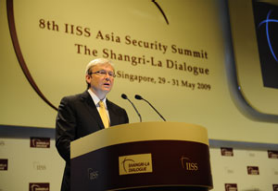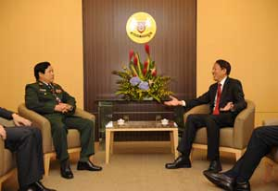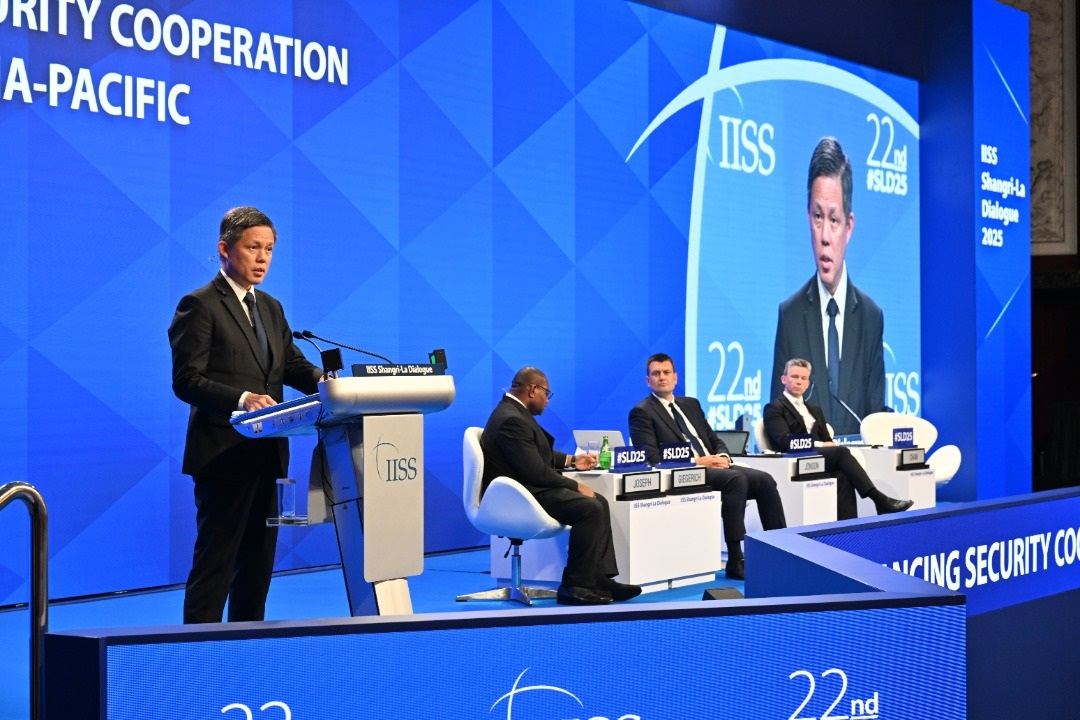DIPLOMACY
CYBERPIONEER - TACKLING SECURITY CHALLENGES TOGETHER (JUN 09)
07 Jun 2009

As non-traditional, transnational security challenges in the Asia-Pacific region are compounded by the global economic crisis, it has become clear that they cannot be solved by the efforts of a single country.
At the recent Shangri-La Dialogue, Deputy Prime Minister and Minister for Defence Teo Chee Hean addressed defence ministers and delegates from 27 countries on defence and security issues and the need for transparency in working together towards making the region a safe and prosperous one.
As more states in the Asia-Pacific rise to affluence, the spectrum of strategic interests, encompassing trade interests and energy and resource needs, also expands. This necessitates greater military investment to safeguard these interests, shared Deputy Prime Minister and Minister for Defence Teo Chee Hean during his plenary session at the eighth Shangri-La Dialogue (SLD) on 31 May at the Shangri-La Hotel.
He added that amid such strategic uncertainties, one thing is certain - countries in the region desire peace and stability.
Mr Teo is of the view that "the greater the uncertainty, the greater the tendency to want to hedge against it. This is where transparency plays a crucial role to avoid misunderstandings and to increase trust and confidence".
Establishing trust through transparency
Mr Teo proposed three levels of military transparency. The first being a disclosure of one's armaments and arsenal. Through visits to military facilities, public statements about military procurements and plans, and official defence websites containing updates on military programmes, the likelihood of such military programmes being destabilising can be reduced. He added that this, however, will be insufficient to instil confidence with regards to countries' defence intents.
Mr Rudd, the Australian Prime Minister, delivering his keynote address on the first night of the dialogue.
A second level of transparency is required, one which involves clearly communicating security concerns and strategic intent to avoid suspicion and miscalculation. Explained Mr Teo: "When we better understand the concerns that we might have about each other, we can more confidently find ways to take these concerns into account and reassure each other. Where we have common concerns, we can find ways to cooperate meaningfully."
He added that, however, as the Asia-Pacific is a politically and economically diverse region which faces multi-faceted and transnational security challenges, a third level of transparency is needed.
"Concrete action and cooperation among all the regional stakeholders, in a step-by-step manner, are necessary for stable relations and for the region to work together to tackle common threats," he said. Citing examples of operational cooperative mechanisms, Mr Teo referred to the current cooperation in the Gulf of Aden to combat piracy and the Malacca Straits Patrols. Both had a positive effect on regional security and the latter enhanced trust among the participating states of Indonesia, Malaysia, Singapore and Thailand.
A collective effort
Commitment to resolving disputes peacefully based on dialogue and international law, and not on military prowess, can also further reinforce regional trust. To this end, Mr Teo cited the United Nations Convention on the Law of the Sea, which provides a framework for countries to make claims to territorial waters, and also a framework to access the legitimacy of such claims.
Other examples he gave included platforms, such as the SLD, which are instrumental in enabling states to share information, exchange views and voice concerns. Organised by the International Institute for Strategic Studies, the SLD is the only forum that gathers defence ministers from the Asia-Pacific to discuss regional defence and security issues.
Since its inaugural meeting in 2002, the dialogue has become an essential component in the region's defence diplomacy. Discussions at previous dialogues have helped to coordinate approaches to maintain maritime security in the region, and to enhance the region's responses to natural disasters through the delivery of humanitarian assistance.
During this year's dialogue, which was held from 29 to 31 May, Mr Teo met various ministers and officials, including Australian Prime Minister Kevin Rudd. Mr Rudd was the first political leader outside of ASEAN to deliver the keynote address at the dialogue and he stressed the need for an Asia-Pacific Community that would act as a regional body to address all issues pertinent to Asia-Pacific countries. This community would include key nations in the region, as well as China, Japan and the United States.
Indonesia's Minister for Defence Juwono Sudarsono, Malaysia's Minister of Defence Ahmad Zahid Hamidi, United States Secretary of Defense Robert Gates and Vietnam's Minister of National Defence General (GEN) Phung Quang Thanh were among the many ministers who called on Mr Teo. This was GEN Phung's first attendance at the dialogue.
Openness and flexibility
Such transparency and cooperative action could help the building of a robust regional framework to deal with multi-dimensional threats, a point Mr Teo made on 30 May at a private luncheon which he hosted for ministers and officials from 22 countries.
Listing three key attributes of such a framework, he said it first had to be open and inclusive of all countries big and small, as well as international and regional organisations such as the United Nations, because everyone has a role to play.
Second, the security architecture needs to be flexible, and have intersecting bilateral and multilateral frameworks, as well as formal and informal structures. This will provide opportunities for cooperation and dialogues to deal with the wide spectrum of security threats.
Third, with ASEAN located at the centre of the region and with its history as a neutral facilitator that forges cooperation out of conflict, it is well placed to draw the nations together.
A culture of cooperation
In closing, Mr Teo stressed that military transparency is not an end in itself, but a means to peace and stability, adding that "the increasing acceptance and practice of these three levels of transparency have enabled the Asia-Pacific region to gradually foster a norm of dialogue and a culture of defence cooperation".
"If we get it right, the region can harness its cooperative energies to mitigate differences that may arise from time to time, and achieve our objective of enduring stability and cooperation," he said.
He concluded: "We need to do this not just to overcome security challenges and secure our homelands, but also to work together to build a new prosperity and secure better lives for our people."
ALSO READ IN DIPLOMACY
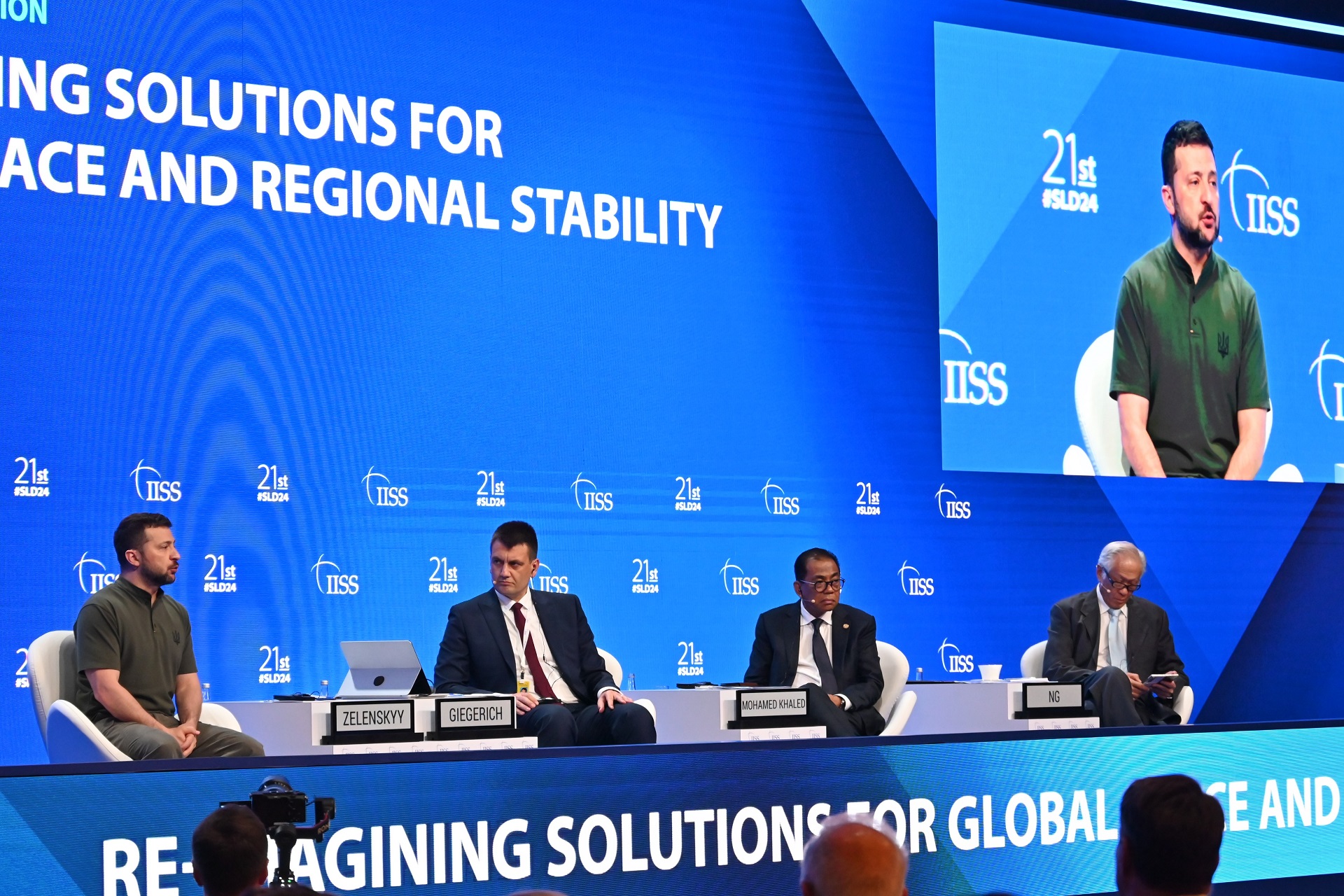
A call for peace at Shangri La Dialogue
02 Jun 2024
A repeated call for peace, especially in Asia. This was Minister for Defence Dr Ng Eng Hen's central message at the 21st Shangri La Dialogue (SLD), held from 31 May to 2 Jun.
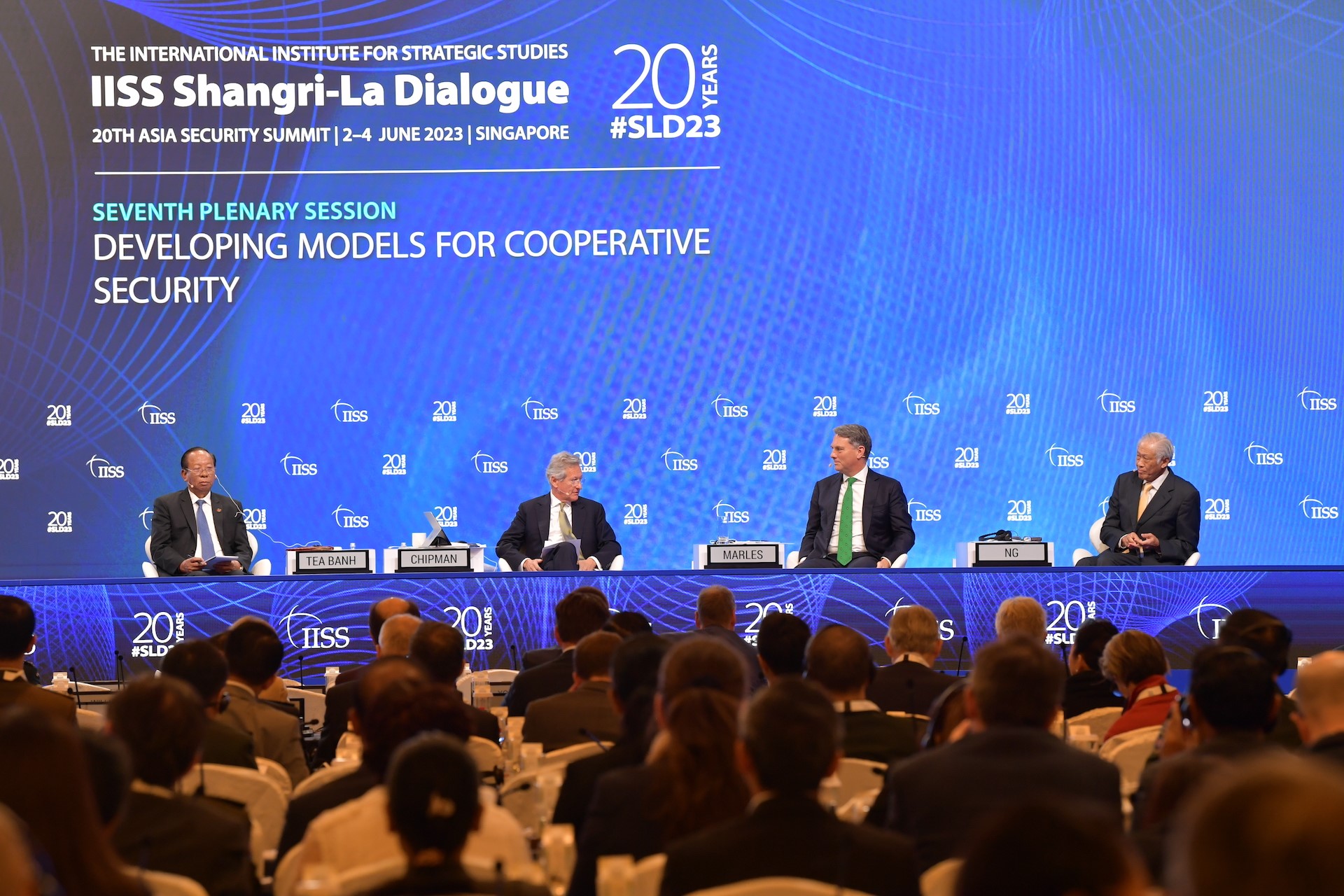
Shangri-La Dialogue sees frank discussion of security issues
04 Jun 2023
The 20th Shangri-La Dialogue, held from 2 to 4 Jun, saw ministers from around the world meet in Singapore to discuss key defence and security issues.
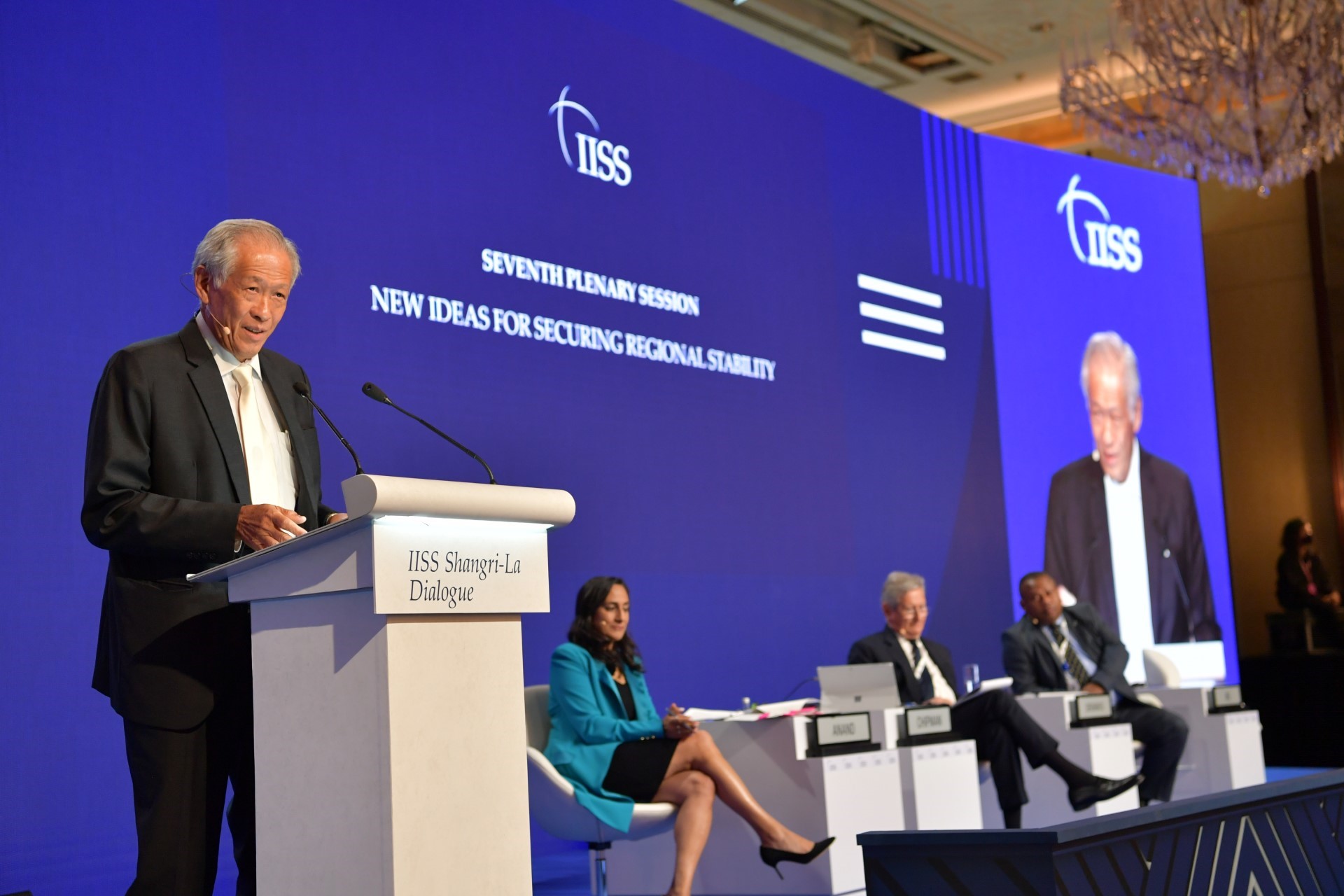
SLD remains valuable platform for crucial discussions: Dr Ng
12 Jun 2022
Minister for Defence Dr Ng Eng Hen spoke on the US-China relationship, the importance of a rules-based order and the role of ASEAN as a regional security platform at the 19th Shangri-La Dialogue (SLD).


